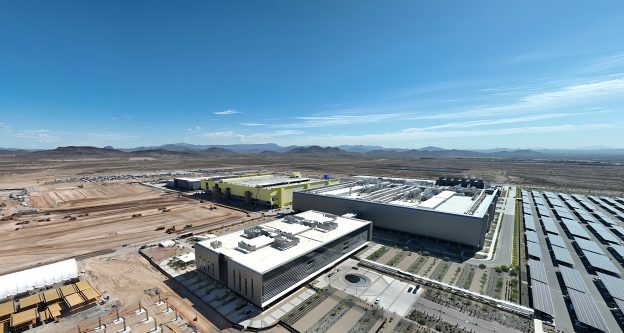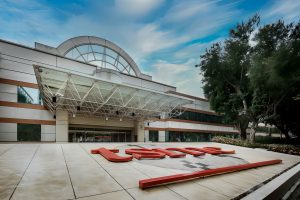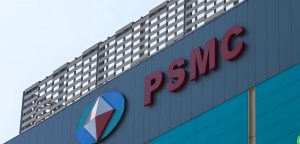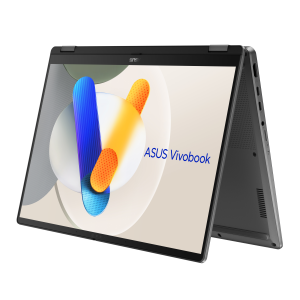Popular Keywords
- About Us
-
Research Report
Research Directory
Semiconductors
LED
Consumer Electronics
Emerging Technologies
- Selected Topics
- Membership
- Price Trends
- Press Center
- News
- Events
- Contact Us
- AI Agent
About TrendForce News
TrendForce News operates independently from our research team, curating key semiconductor and tech updates to support timely, informed decisions.
- Home
- News
[News] TSMC Reportedly Fast-Tracks 2nd AZ Fab in U.S. Push: Tool Move-In by Oct 2026, Targets 4Q27 Production

U.S. President Trump announced on the 7th plans to impose a 100% tariff on semiconductors, while noting that chips manufactured in the U.S. would be exempt. As such, TSMC is expected to qualify for the exemption. In line with this, MoneyDJ notes that TSMC is accelerating construction of its U.S. fabs to meet local production requirements.
Citing sources, the report highlights that TSMC’s second Arizona fab (P2) is expected to begin equipment move-in by October 2026. Based on this timeline, a mini-line is expected by Q2 2027, with volume production starting in Q4 2027—well ahead of the original 2028 target.
In addition, the report, citing sources, notes that TSMC’s advanced packaging plant is scheduled to begin construction in 2028 and will be connected to its third Arizona fab. The first technologies to be introduced will be SoIC (System-on-Integrated-Chips) and CoPoS (Chip-on-Panel-on-Substrate), rather than CoWoS (Chip on Wafer on Substrate). The report adds that SoIC—TSMC’s most advanced packaging technology currently in mass production—will be integrated with CoWoS and, eventually, with future CoPoS solutions.
TSMC is accelerating its U.S. push, with its third Arizona fab (F21 P3) reportedly breaking ground in Q2. Still, the foundry giant is playing catch-up—Treasury Secretary Scott Bessent revealed TSMC’s Arizona site currently meets just 7% of U.S. chip demand, according to Wccftech via The The All-In Podcast.
Potential Impact of Semiconductor Tariffs on TSMC
MoneyDJ notes that in response to President Trump’s efforts to pressure foreign companies into building fabs in the U.S., TSMC is accelerating construction to meet these expectations. The report also highlights that TSMC’s irreplaceable position in advanced process technologies and strong pricing power enables it to pass on higher costs through price increases, helping the company maintain stable profitability.
According to TrendForce, U.S. semiconductor imports mainly consist of modular components and assembled devices—a category not explicitly covered by current trade policies.
For foundries, the primary impact is expected to come from tariffs on imported equipment and materials. As TrendForce highlights, companies with established U.S. operations—such as TSMC and its key suppliers—are likely to face minimal disruption.
TrendForce also notes that existing trade agreements with Japan, South Korea, and the EU have already reduced semiconductor tariffs. However, with negotiations still ongoing and no formal treaty in place, the full impact on foundries remains uncertain.
Read more
- [News] TSMC’s 2nm Data Leak Exposes Fragile Triangle: TEL, Rapidus, and Taiwan-Japan Semiconductor Clash
- [News] TSMC’s 2nm Node Reportedly Set for 60K Monthly Output in 2026, with Prices 50% Above 3nm
- [News] TSMC’s Arizona Fab Reportedly Meets Only 7% of U.S. Chip Demand for Now Despite Expansion Push
(Photo credit: TSMC)





